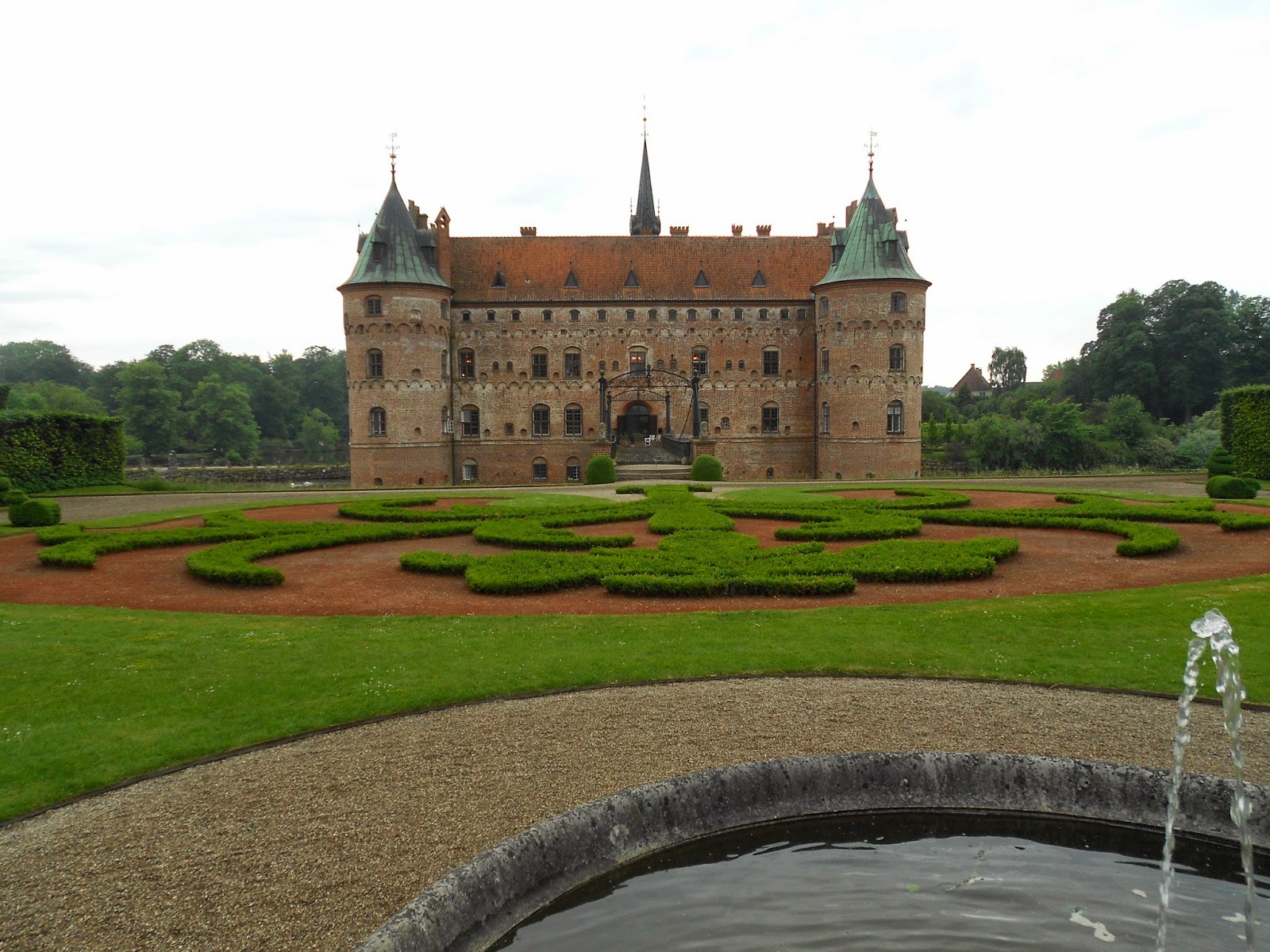Egeskov
Egeskov
Yesterday we visited Egeskov, which was the final location we visited before the final day of class: today. There were things to do there for every age and interest, from amazing playgrounds for children, phenomenal car and motorcycle museums for the motor enthusiasts, and an amazing museum inside the castle of the different counts and their collections. Toby's final question is...
Does the historic and elitist institution of
the country house estate have a role and purpose in Denmark’s egalitarian
society? Explain your answer.
I
believe that the historic and once elitist institutions of country house
estates play a vital role in Denmark’s egalitarian society due to the support
they now give to the historic preservation and great things they offer to the
public. During our visit to Egeskov, I noticed that even though the money was
invested by the counts in the ways they chose (motorcycles and cars), the
current count offers them to be viewed by the public. There is a fee involved,
but it is used to maintain the exhibits, gardens, and recreational activities
of Egeskov. The people being paid for maintenance are hard-working individuals
that are part of the egalitarian society. The count also created the gardens to
make sure none of the families on the estate would be fired due to the new
farming equipment. These actions prove that this country estate has offered
many things to the community and focuses on the people, rather than the profit
or the power held by money. Many other elitist institutions now offer many
things back to the people, since at one point in the middle stages of garden
design, a rich lord commissioned his garden to be paid for by the people’s
taxes. After the people discovered this, they became upset and rose against
many of his other laws. The future of major garden construction then became a
lone investment by the party wishing to create the gardens, and in order to
please the people looking through the fences at these originally private
gardens many elites opened their gates to the public. The new wave of people
also would have created the need for more maintenance, which means more jobs
for the people who need them. Although these large estates were owned by the
rich and powerful of the time, they were the kindest and most generous way to
show wealth once many were opened to the public.
Egeskov:




























































